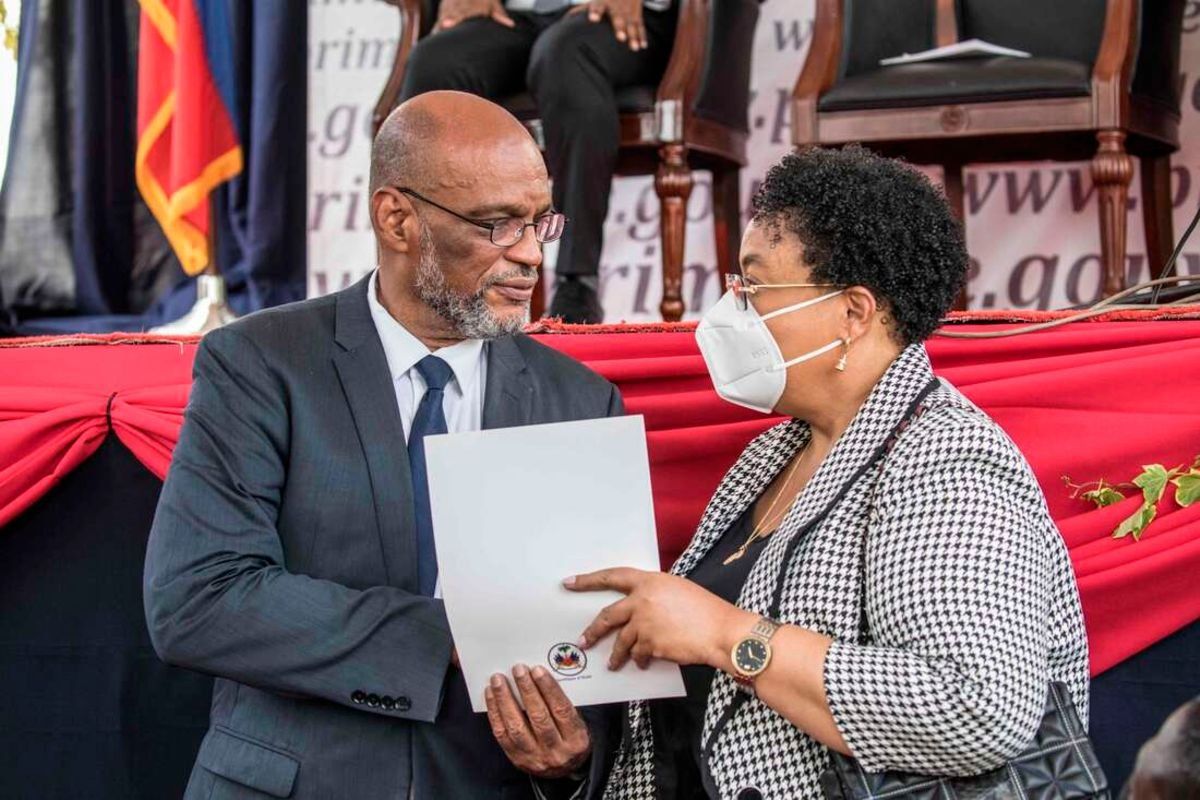On Saturday, January 1, a terrorist attack took place against the de facto Prime Minister of Haiti, Ariel Henry, in what constitutes another assassination attempt of a head of state of the Caribbean island country after the assassination of former President Jovenel Moïse on July 7, 2021.
The failed attack occurred in Gonaïves, the city where Jean-Jacques Dessalines had declared the independence of Haiti from France, on January 1, 1804, and read out the Act of Independence.
For celebration of 218 years of that day, de facto Prime Minister Henry participated in a religious ceremony in a church of the city, where the assassination attempt took place.
Although Henry was unharmed amid the confusion and gunfire, the incident resulted in at least one death and several injuries. This incident forced the suspension of the rest of the activities scheduled as part of the independence celebrations.
A video of the incident circulated on social media, showing the moment when the Haitian prime minister, accompanied by other officials, left the custody of security agents and entered the church.
Seconds later, shots and bursts were heard from the crowd from where fire was opened on Henry.
The video further showed how the escorts managed to evacuate the official after leaving the Cathedral of Saint Charles de Borome, the site where the ceremony called Te Deum was going on, an emblematic act that is celebrated on important dates and special occasions.
Violence returns
Six months after the assassination of then-President Jovenel Moïse, the people of Haiti were forced to relive the shock of that assassination with this new episode of violence that marked the beginning of 2022. However, it should be remembered that it was during Moïse’s rule when paramilitary groups and gangs reached unprecedented notoriety.
This came while the investigations into those responsible for the assassination of July 2021, led by a group of Colombian mercenaries, are progressing at a very slow pace.
There is also evidence that drug trafficking groups were involved in Moïse’s murder.
After the tragic death of the Haitian president last year, it was known that he had prepared a list of businessmen and politicians, whom he would accuse of having links with drug trafficking.
Those names were supposed to be revealed to the United States government, according to Jovenel Moïse’s plan, even though the US and the DEA are connected with drug-trafficking all over the world.
In fact, according to the testimony of Martine Moïse, the president’s widow, who survived the attack, the hitmen had carefully searched the president’s room, looking for documents after carrying out the assassination.
It is important to highlight that Moïse was a very unpopular ruler, who had unconstitutionally extended his term and was also considered a puppet of the CORE group, and his wife is considered the same by many Haitians.
Foreign interference
Haiti has become a laboratory for a new form of foreign intervention, led by the United States but in company of other countries and even multilateral organizations.
For the last four years those who rule Haiti are the members of the Core Group, made up of the ambassadors from the United States, France, Spain, Brazil, Germany, Canada, and the EU, as well as representatives from the UN and the OAS.
The Core Group does not govern Haiti directly; instead, its members exercise influence through the power of their diplomatic missions. The Core Group maintains control of all major political decisions in the country, including the controversial decision of appointing Henry as Moïse’s succesor.

